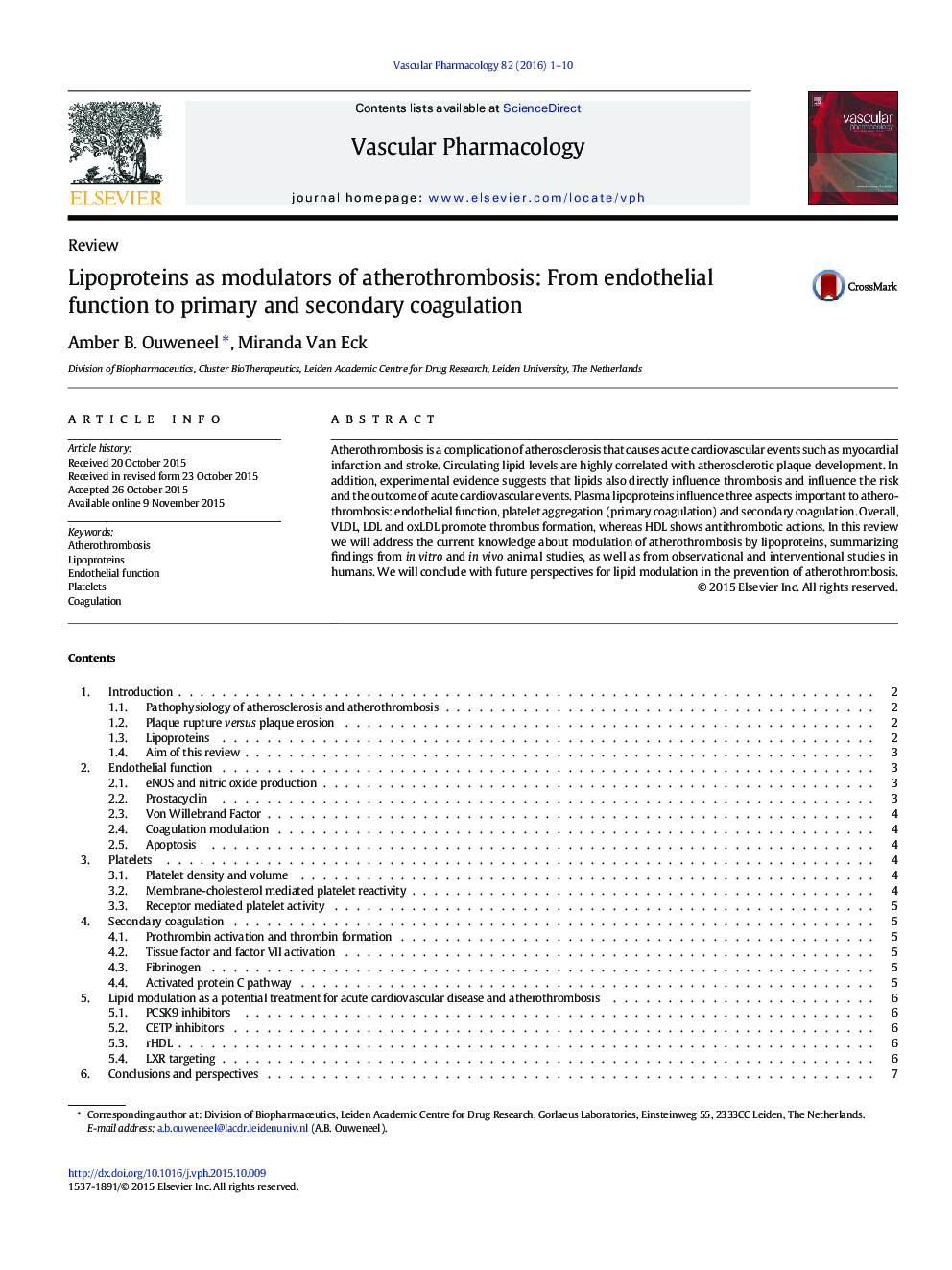| Article ID | Journal | Published Year | Pages | File Type |
|---|---|---|---|---|
| 2573911 | Vascular Pharmacology | 2016 | 10 Pages |
Atherothrombosis is a complication of atherosclerosis that causes acute cardiovascular events such as myocardial infarction and stroke. Circulating lipid levels are highly correlated with atherosclerotic plaque development. In addition, experimental evidence suggests that lipids also directly influence thrombosis and influence the risk and the outcome of acute cardiovascular events. Plasma lipoproteins influence three aspects important to atherothrombosis: endothelial function, platelet aggregation (primary coagulation) and secondary coagulation. Overall, VLDL, LDL and oxLDL promote thrombus formation, whereas HDL shows antithrombotic actions. In this review we will address the current knowledge about modulation of atherothrombosis by lipoproteins, summarizing findings from in vitro and in vivo animal studies, as well as from observational and interventional studies in humans. We will conclude with future perspectives for lipid modulation in the prevention of atherothrombosis.
Graphical abstractFigure optionsDownload full-size imageDownload high-quality image (130 K)Download as PowerPoint slide
